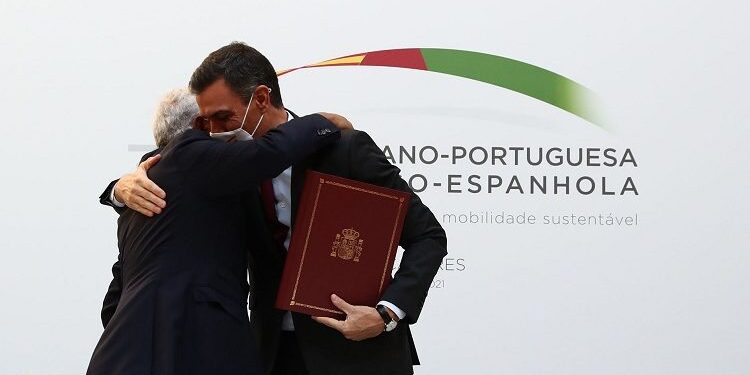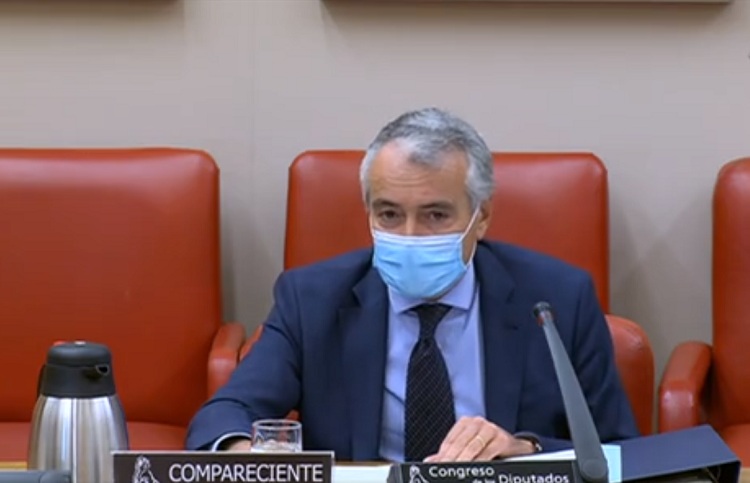The Diplomat
The political crisis in Portugal came to the fore yesterday, inevitably, during the XXXII Spanish-Portuguese Summit, held in Trujillo (Cáceres) under the slogan For sustainable mobility and in which both governments adopted a Joint Declaration in which they reaffirmed their willingness to continue working together within the European Union and NATO.
As previously announced, nine agreements were signed during the Summit, including, in addition to the Treaty of Friendship and Cooperation -which does not repeal but complements the previous Treaty signed in 1977 by former President Adolfo Suárez and former Prime Minister Mario Soares-, the cooperation agreement to promote joint projects, within the framework of the recovery plans, in four priority areas: electric and connected vehicles, ecological transition and renewable energies, space programs and technologies and the development of digital infrastructures.
The two governments also pledged to promote an Iberian digital alliance to cooperate in areas such as the digital connectivity hub, 5G, the creation of clouds, Artificial Intelligence, digital infrastructure and digital entrepreneurship, and signed four Memorandums of Understanding on cooperation in road infrastructure, reform of the International Bridge over the Miño River, archives related to the Democratic Memory and Agenda in the Digital Sphere. In addition, and within the framework of the Common Cross-Border Development Strategy, they signed two agreements on the international stretch of the Miño River -referring to hunting and fishing- and the Cross-Border Worker’s Statute.
The Summit concluded with the adoption of a Joint Declaration in which Spain and Portugal reaffirmed their willingness to continue working together to defend common positions within the European Union and the Atlantic Alliance, as well as “inclusive multilateralism” based on the “centrality” of the United Nations and the international order governed by “scrupulous respect for International Law”. The Declaration also notes the “excellent moment in bilateral relations between Spain and Portugal”, reinforced in “the shared fight of both countries against the pandemic”, and the common challenge of achieving “a social and economic recovery aligned with fair green and digital transitions, generating greater gender equality and social and territorial cohesion”.
The Portuguese crisis
The Summit was held in the same format as the previous ones: separate meetings of the two heads of government and of each of the ministers with their respective counterparts, and a subsequent joint meeting to share what was discussed. On the Spanish side, in addition to the President of the Government, Pedro Sánchez, the participants included the First Vice-President and Minister of Economic Affairs and Digital Transformation, Nadia Calviño; the Second Vice-President and Minister of Labor and Social Economy, Yolanda Díaz; the Third Vice-President and Minister for Ecological Transition and the Demographic Challenge, Teresa Ribera; the Minister of Foreign Affairs, José Manuel Albares; the Minister of the Interior, Fernando Grande-Marlaska; the Minister of Transport, Mobility and Urban Agenda, Raquel Sánchez; the Minister of Industry, Trade and Tourism, Reyes Maroto; the Minister of Agriculture, Fisheries and Food, Luis Planas; and the Minister of Culture and Sport, Miquel Iceta.
At the end of the Summit, the two heads of government held a press conference which was marked, as was to be expected, by domestic political issues in each country. In this regard, the Prime Minister of Portugal, António Costa, twice evaded questions about the crisis facing his government after the Parliament rejected the General Budget this Wednesday (something that had not happened in almost 50 years of democracy), which could force the President of the Republic, Marcelo Rebelo de Sousa, to dissolve the House imminently and call early elections, probably at the end of next January.
“National politics is discussed in Portugal and here what we discuss are the relations between Portugal and Spain in the framework of the European Union, NATO and the global world,” Costa declared. “I am not in the habit of talking about domestic politics abroad and I have to maintain that principle,” he warned. “Domestic politics is dealt with in our country and the only person who can respond is the president of the Republic of Portugal,” he added. For his part, Pedro Sánchez did not want to pronounce himself on that issue either, but he did take the opportunity to praise his Portuguese counterpart, of whom he highlighted his capacity “for dialogue and work to reach agreements” in the European institutions. “I think Portugal is an example of stability,” he added.







